
Transcription
Truthout
NEWS | PRISONS & POLICING
Behind Bars, Co-Pays Are a Barrier to Basic Health Care
Michael Sanchez lies in the outpatient section of the health care building at Valley State Prison on December 18, 2013 in Chowchilla, California. A new bill in the state promises to relieve the burden for tens of thousands of Californians behind bars, bringing the state in line with eight other states that do not charge for prison health care.
indifference, violating the Eighth Amendment prohibition against cruel and unusual punishment. Incarcerated people do not have access to jobs that pay minimum wage, meaning that they are dependent upon jails and prisons to provide for their basic needs, including health care needs.
That doesn't mean that jails and prisons haven't put up other barriers to essential care. In 41 states, if a person in prison wants medical care, they need to cough up a co-pay. These co-pays - which typically range from $3 to $5, but can be as high as $8 per visit (https://www.prisonpolicy.org/reports/copay_policies.html) typically range from $3 to $5, but can be as high as $7.50 per visit - may not seem like an exorbitant expense, especially when compared to co-pays in the outside world. However, for people behind bars, even those few dollars may put basic care out of reach. Prison jobs pay pennies per hour, meaning that even a $3 co-pay might mean working anywhere between 12 to 23 hours to be able to pay that amount. In California, where Lytle was incarcerated, she was paid 8 cents an hour to work in the prison kitchen. The prison's medical co-pay was $5.
[Never miss another story
Get the news you want, delivered to your inbox every day.]
Meanwhile, many incarcerated people have no source of income whatsoever. Most prisons do not have enough jobs for the hundreds, if not thousands, of people in custody.
For people incarcerated in Alabama, Arkansas, Florida, Georgia, Mississippi, South Carolina and Texas, however, having a "job" doesn't mean having an income. Prisons in those states pay nothing to the majority of their incarcerated workers while charging co-pays ranging from $3 to $5 for medical visits (https://www.prisonpolicy.org/blog/2017/04/19/copays).
In 2012, Texas lawmakers changed the prison co-pay system from $2 per visit to a flat yearly fee of $100 (https://www.texastribune.org/2012/10/16/tdcj-inmates-paying-100-fee-health-care/). The new law allows exceptions for emergencies, chronic care or follow-up services for an initial treatment. But the initial treatment still requires that $100 co-pay. Those who do not seek medical care can avoid that cost altogether - and it seems like that's what they've been doing. In 2014, two years after the co-pay system changed, only 15,000 of the more than 150,000 state prisoners paid the $100 fee (https://www.vice.com/en_us/article/vvqw9d/texas-may-double-healthcare-fees-for-its-massive-prison-population).
These co-pays not only deter people from seeking medical care for illnesses and injuries, but, in several instances, they have contributed to a mass outbreak that could have been prevented had jails and prisons not instituted this costly barrier. In 2003, the Centers for Disease Control identified co-pays as one of the factors that contributed to mass outbreaks (https://www.cdc.gov/mmwr/preview/mmwrhtml/mm5241a4.htm) of MRSA [Methicillin-resistant Staphylococcus aureus] in Georgia and Texas prisons, as well as the Los Angeles county jails.
Californians Fight to End Co-Pays in Custody
In California, incarcerated people have advocated around prison health care for decades. Their demands have included better medical and reproductive health care, an end to sterilization (https://truthout.org/articles/the-plight-of-californias-prisons-hunger-strike-sterilization-and-valley-fever/) practices, and improved mental health care and suicide prevention practices. This year, they're working with lawmakers to introduce AB 45 (https://leginfo.legislature.ca.gov/faces/billTextClient.xhtml?bill_id=201920200AB45), a bill to eliminate the $5 co-pay in the state's prisons and jails.
Even a $3 co-pay might mean working anywhere between 12 to 23 hours to be able to pay that amount.
Romarilyn Ralston is an organizer with the California Coalition for Women Prisoners. She entered the California prison system in 1988 when no co-pay was charged for medical care. But that didn't mean that people had ready access to health care or their concerns were taken seriously. Ralston recalls long medical lines, frequent misdiagnoses and many stories of people's complaints not being taken seriously by medical staff.
Then, in 1994, the California Department of Corrections and Rehabilitation (CDCR) began charging a $5 co-pay for all medical and dental visits (https://www.sacbee.com/news/politics-government/capitol-alert/article226572054.html). The fee is waived for people who are considered indigent, or who have $1 or less in their prison account for 30 consecutive days. If the person received funds - say, money from a family member or loved one - within the following 30 days, the $5 co-pay would automatically be deducted. (In 2018, the amount for indigent status was raised to $25. That exemption now affects nearly 61,000 (https://www.latimes.com/politics/la-pol-ca-california-inmate-health-copay-20190129-story.html) of the state's 131,000 prisoners.
Even with that exemption, the co-pay put medical care even more out of reach for many. For years, that included Ralston. "I had no one supporting me [financially] except for my grandmother, who lived on a pension," Ralston told Truthout.
Ralston worked as a porter, earning about $20 each month, or 8 cents per hour. That meant that she often had to choose between buying soap, shampoo and feminine hygiene products, or seeking medical care.
That wage does not seem to have increased. Today, California prison wages range from 8 to 37 cents per hour; for the select few who work in correctional industries (or state-owned businesses), wages can be up to 95 cents per hour (https://www.prisonpolicy.org/blog/2017/04/10/wages/).
Fifty-five percent of those wages go toward restitution fees, leaving most incarcerated people with $1 to $6 for their workweek.
Care has remained inadequate, sparking several lawsuits by incarcerated people. In 1995, women imprisoned at the Central California Women's Facility filed Shumate v Wilson (https://www.clearinghouse.net/detail.php?id=582), a class-action suit challenging the state's medical care in its women's prison. In 2001, incarcerated people (of all genders) filed Plata v Brown (https://www.law.cornell.edu/supct/html/09-1233.ZS.html), a class-action lawsuit charging that California's shoddy prison medical care violated the Eighth Amendment prohibition against cruel and unusual punishment. Though the state agreed to take a series of actions to improve prison health care, in 2006, the federal court found that the state continued to fail in providing a constitutional level of medical care to people in prison (https://lao.ca.gov/reports/2012/crim/inmate-medical-care/inmate-medical-care-041912.pdf) and appointed a Receiver (or an independent person) to take over the state's prison health care.
Co-pays not only deter people from seeking medical care, in several instances, they have contributed to a mass outbreak that could have been prevented.
For Ralston, the co-pay meant putting off medical care, which led to disastrous consequences. For months, she endured a tickle in her throat, which grew into a cough. "I probably should have gone months before," she reflected, but each month she was faced with the choice of spending her paltry prison wages on hygiene items or a doctor visit. When she finally did seek medical attention, the doctor ordered a chest x-ray. The x-ray revealed spots on her lungs. Ralston was taken to the hospital where she underwent a lung biopsy, which revealed that she had sarcoidosis (https://www.mayoclinic.org/diseases-conditions/sarcoidosis/symptoms-causes/syc-20350358), a growth of inflammatory cells on her lungs. Untreated, sarcoidosis can lead to pulmonary fibrosis (permanent scarring of the lungs) and problems in other organs.
For Ralston, having sarcoidosis led to inflammation not only in her lungs, but also in her eyes. She contracted a cataract and later, had a small stroke. "Could they have caught it sooner? Probably yes," she said. But she would have had to visit the doctor months earlier, which would have meant forgoing buying soap and deodorant or other needed items.
According to an analysis of the Assembly Committee on Appropriations (https://leginfo.legislature.ca.gov/faces/billAnalysisClient.xhtml?bill_id=201920200AB45), CDCR collects up to $1.68 million each year from co-pays. In fiscal year 2017-2018, it received approximately $460,178 in co-pays for medical and dental visits.
In February 2019, the CDCR announced a policy eliminating these co-pays. Starting on March 1, state prisoners no longer need to pay for medical visits. This new policy only extends to state prisons; it does not apply to the approximately 82,000 people in the state's local jails (https://www.prisonpolicy.org/profiles/CA.html), however, who will continue to pay as much as $3 per medical visit. And, as the Assembly Committee on Appropriations noted, "CDCR is not currently required by law to eliminate copays for inmate-initiated medical and dental visits." In other words, prison officials could, at some other point, decide to reinstate co-pays for medical and dental care.
Lytle, now a community organizer with the California Coalition for Women Prisoners (http://womenprisoners.org), sees this as a partial victory. Without legislative fiat, CDCR could reinstate medical co-pays.
Ralston agrees. "We commend CDCR for stepping up," she said. "But we want to make sure this is in the law. Regulations can be changed at any given time. To go through the legislative process requires another legislative process."
That's why she, Lytle and other advocates are continuing to push AB 45 to both codify the lack of co-pay and to expand this right to medical care to people in the state's jails as well.
In California jails that charge a co-pay, the cost is $3 per visit. Some, like Los Angeles's Lynwood jail, don't forgive the debt if a person is discharged. Instead, the balance is recorded and, if the person returns to the jail, that amount is deducted from whatever money they have in their pockets when arrested.
That's what happened to Lytle, who was in and out of the Lynwood jail for six years after she was discharged from foster care without a safety net or support system. "Every time I got out of jail and went back, I had a negative balance on my books," she recalled. "Most of it was from co-pays."
Lytle had about $80 in her pocket the last time she was arrested and sent to the Lynwood jail. She remembered making plans to stretch that amount to cover her basic necessities, but she owed the jail over $30 in co-pays for medical care during past incarcerations. Jail officials immediately deducted that amount. At other times, she recalled, "I went in with smaller amounts and my negative balance was bigger, so I'd have no money and still have a negative balance."
AB 45 would change that. But it's not without its detractors. The Riverside Sheriffs Association submitted its opposition (https://trackbill.com/bill/california-assembly-bill-45-inmates-medical-care-fees/1609311/), stating that while the association supports efforts to help people in custody remain healthy, "our members also recognize that if any inmate at any time can request medical attention for any reason, there would never be enough staff to handle the inmate transfers from cell to medical."
Lytle disagrees. "Many incarcerated people in California never received proper medical attention on the street due to lack of coverage and care," she stated during her recent testimony before the California Assembly Public Safety Committee. "Allowing medical fees inside jails and prisons further restricts them from needed medical and dental services. I've personally experienced and witnessed how much sicker people get in jail when they avoid asking for medical help because they don't have the money or don't want to be in more debt," she told the Assembly members.
She rebutted the concerns of the Sheriffs' Association about people making "frivolous" medical visits, stating, "We've seen in California and across the country what happens when incarcerated people are denied medical help because of this stigma. People die. Please do not allow this false idea about incarcerated people to direct your policy choices. AB 45 will save lives."
The Public Safety Committee agreed and voted to pass the bill. AB 45 is now in the state's Appropriations Committee, where it is being evaluated for its fiscal impact. If the bill passes the legislature and is signed into law, it would relieve the burden for tens of thousands of Californians behind bars, bringing the state in line with eight other states (New York, Missouri, Montana, Oregon, Vermont, Wyoming, Nebraska and Illinois (https://www.prisonlegalnews.org/news/2019/jan/8/illinois-ends-medical-co-pays-prisoners-doc-healthcare-criticized/) that do not charge for prison health care. It would also serve as a possible blueprint for prison justice advocates in the other 41 states where co-pays continue to be a barrier to basic health care.
Or, as Lytle reflected, "No one should have to choose between hygiene products or whether they don't want to faint when they wake up tomorrow."
Psssttt! While you're here we really need your help.
Since Donald Trump took office, progressive journalism has been under constant attack and Facebook and Google are now intentionally limiting your access to sites like Truthout. As our traffic declined so have our donations. This is exactly what Trump wants.
Here's how you can help: Since we don't run ads or take corporate or government money, we need more support from our visitors.
By making a regular donation of any amount (whether you can give $1 or $10,000), you'll help us fight back by increasing our distribution of journalism that makes a real difference.
Will you help us stand up to Trump today?
Yes, I'll chip in
(https://truthout.org/callouts/255404)
Other posts by this author
|
2023 may 31

|
2023 mar 20
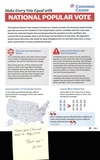
|
2022 aug 23

|
2022 aug 23

|
2022 aug 23

|
2022 aug 23

|
More... |
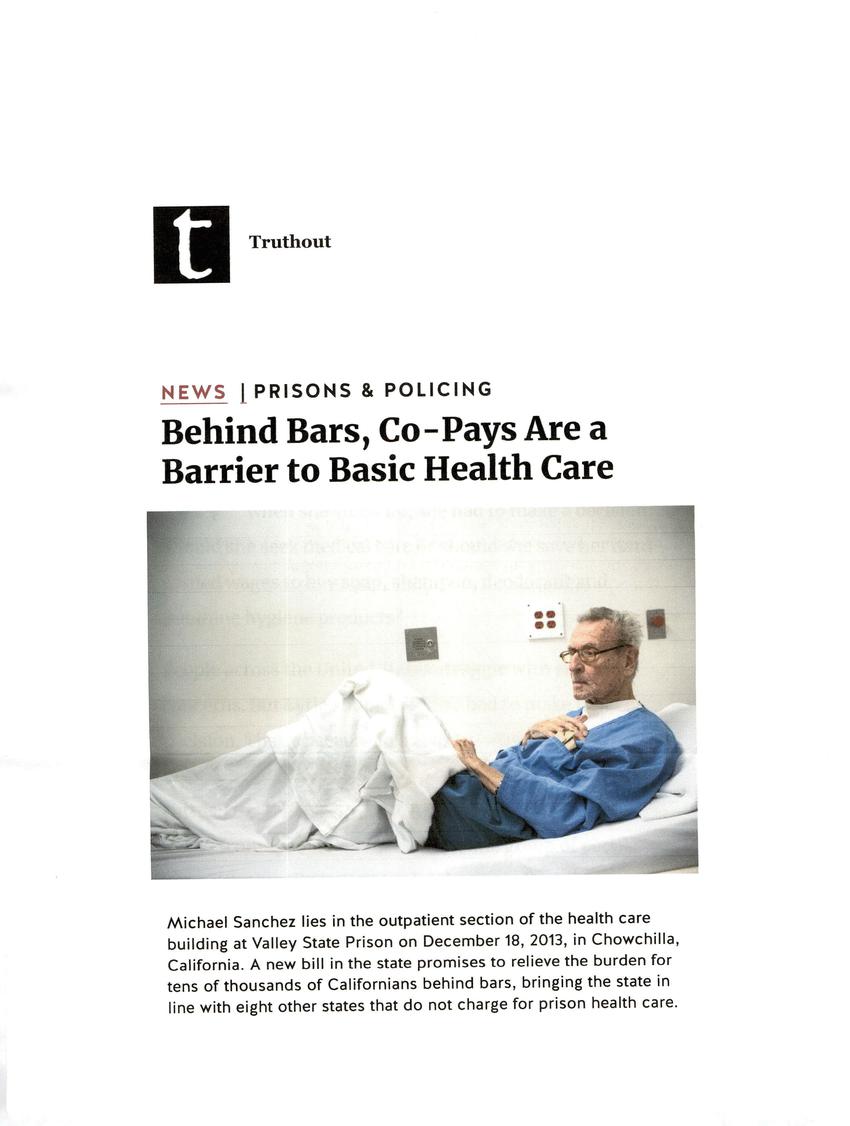
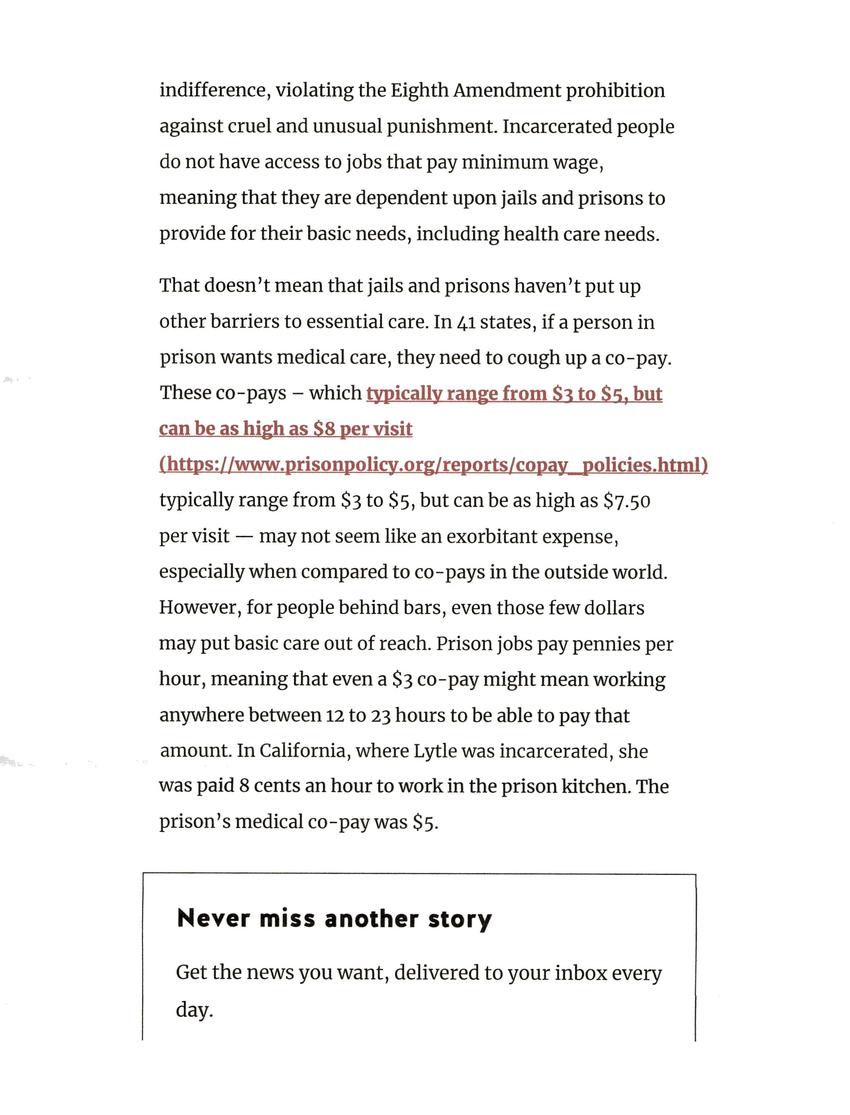
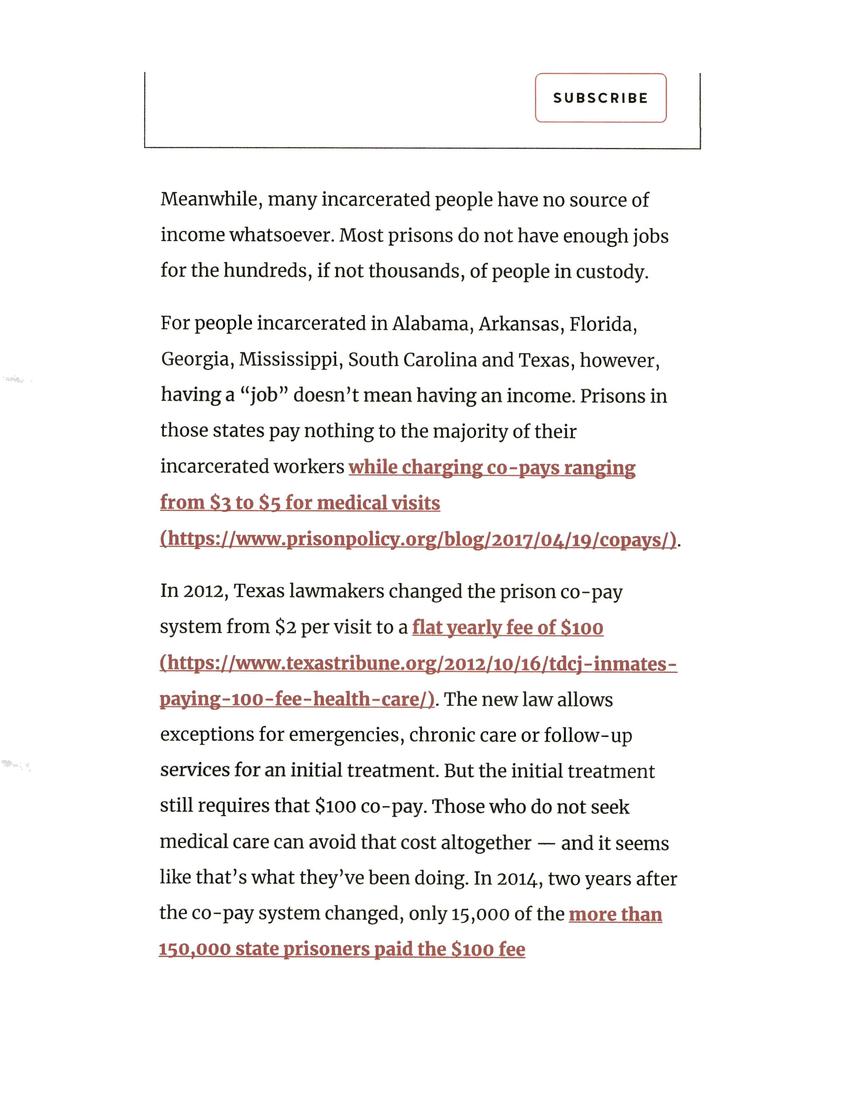
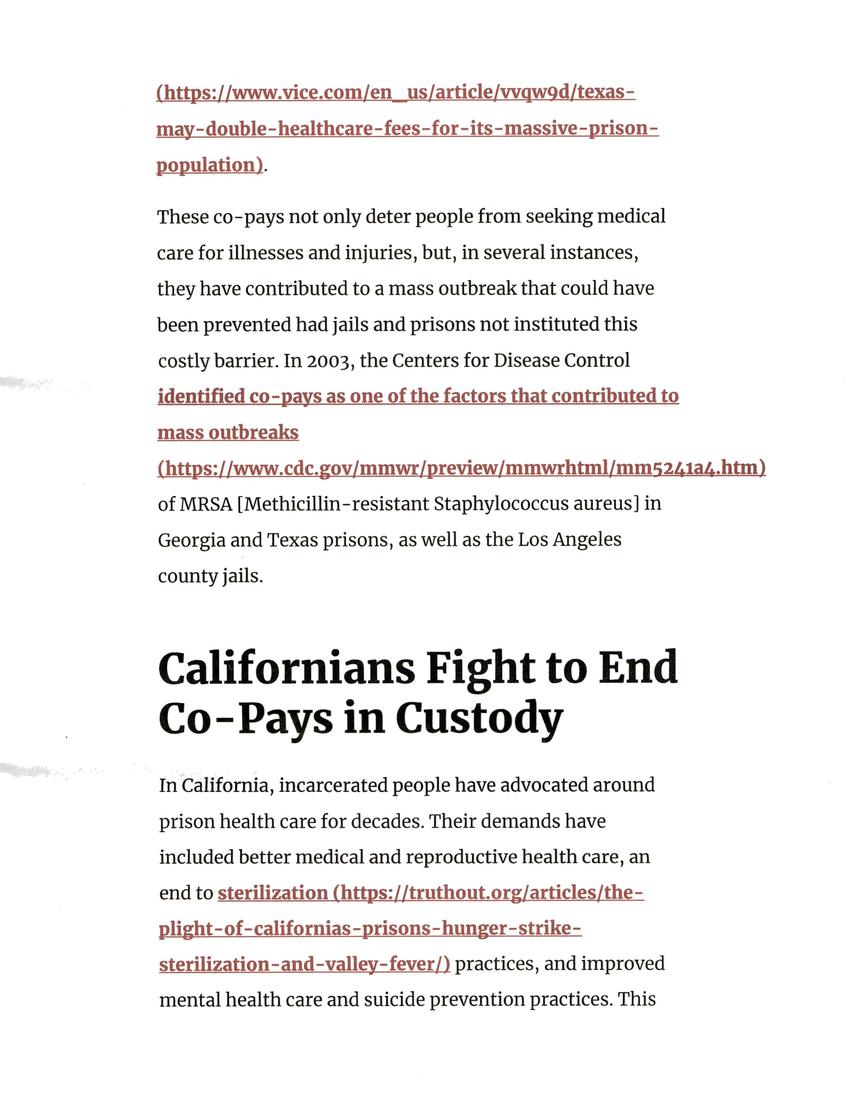
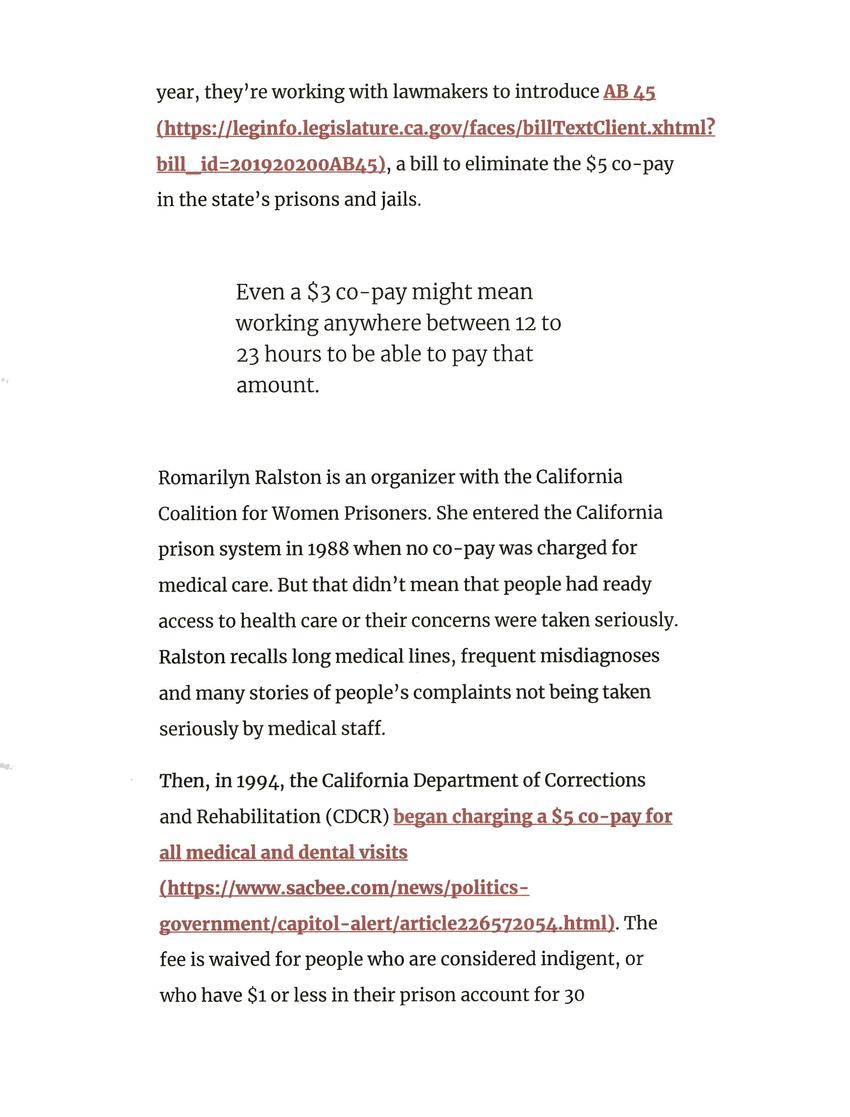
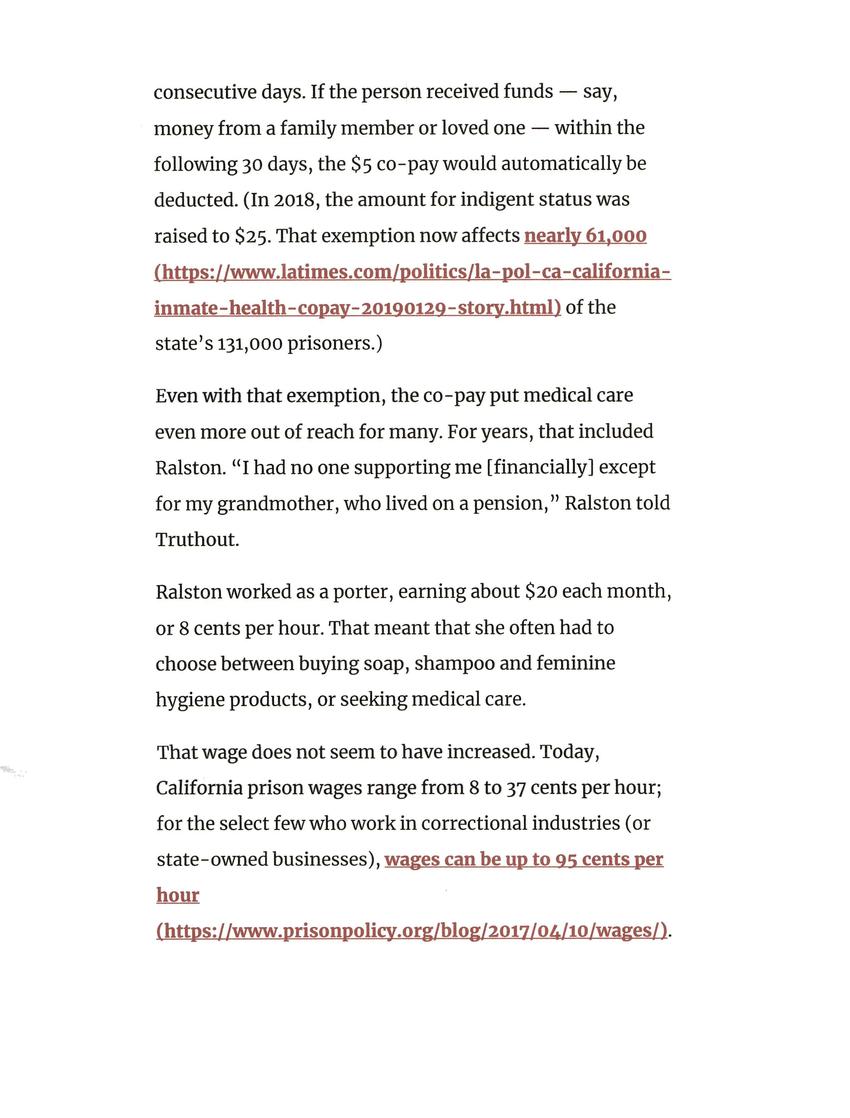
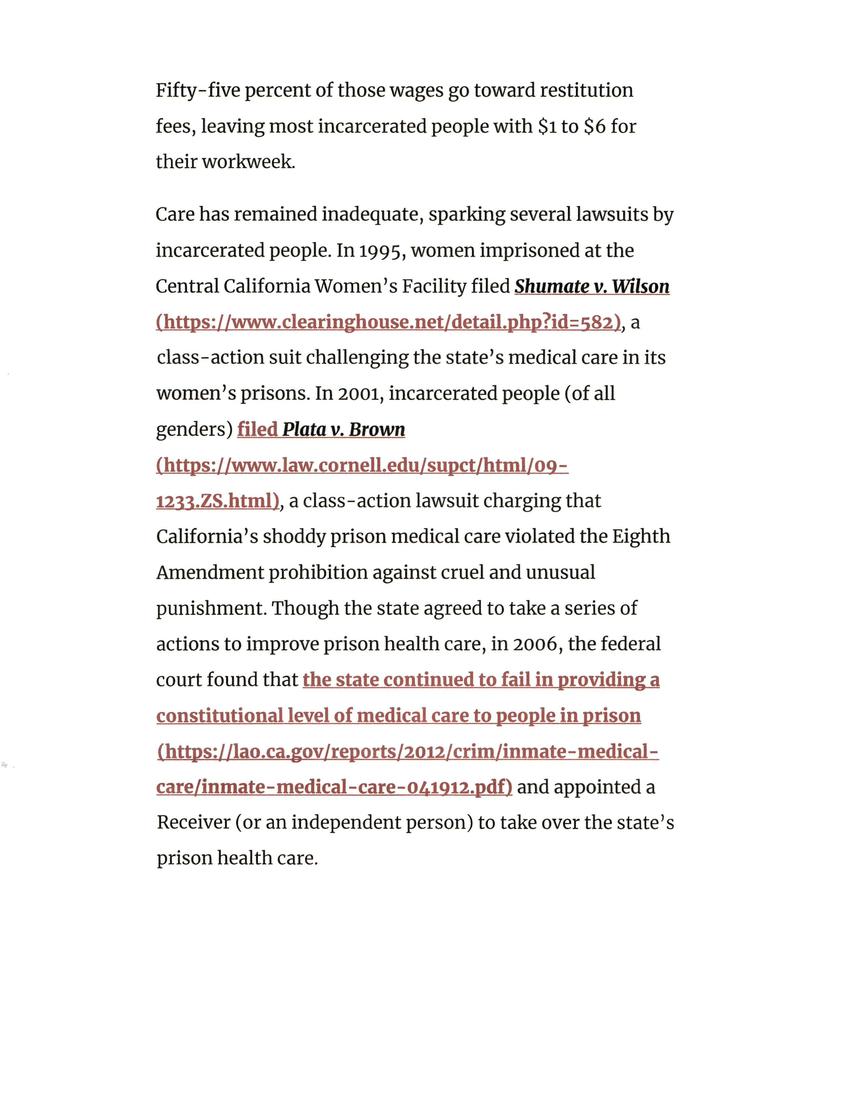
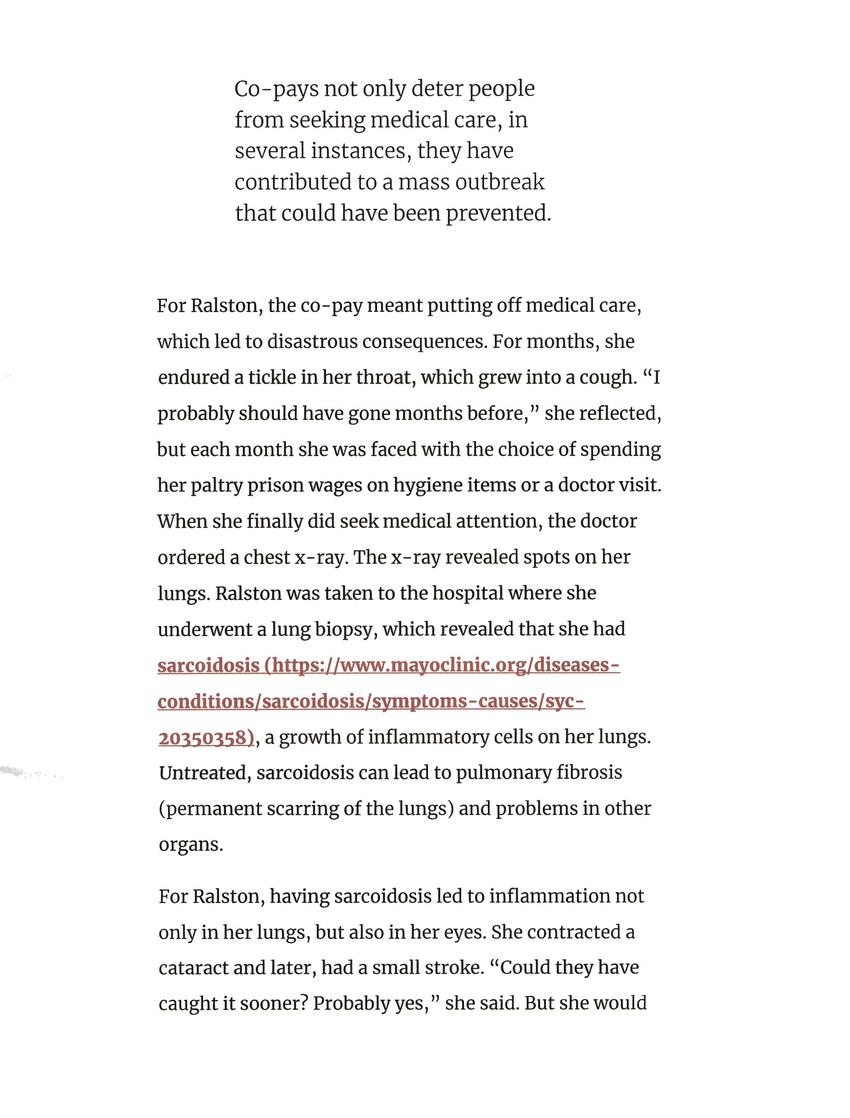
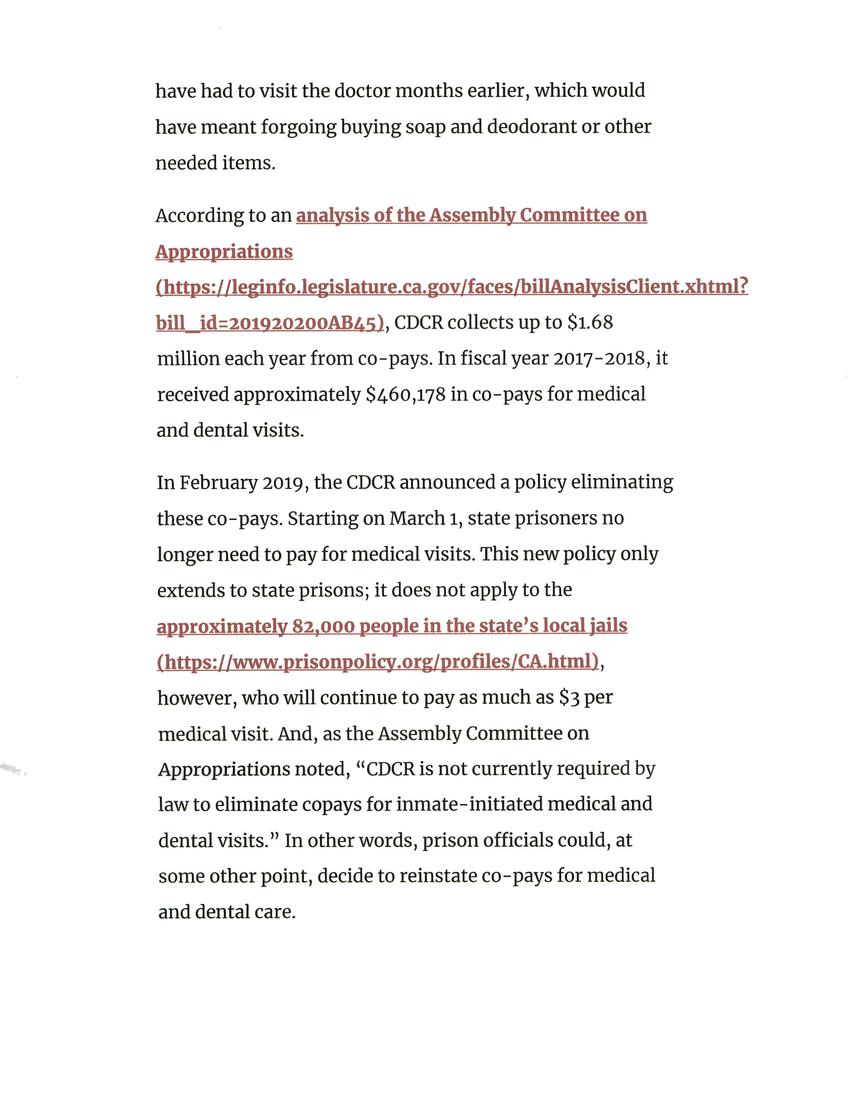
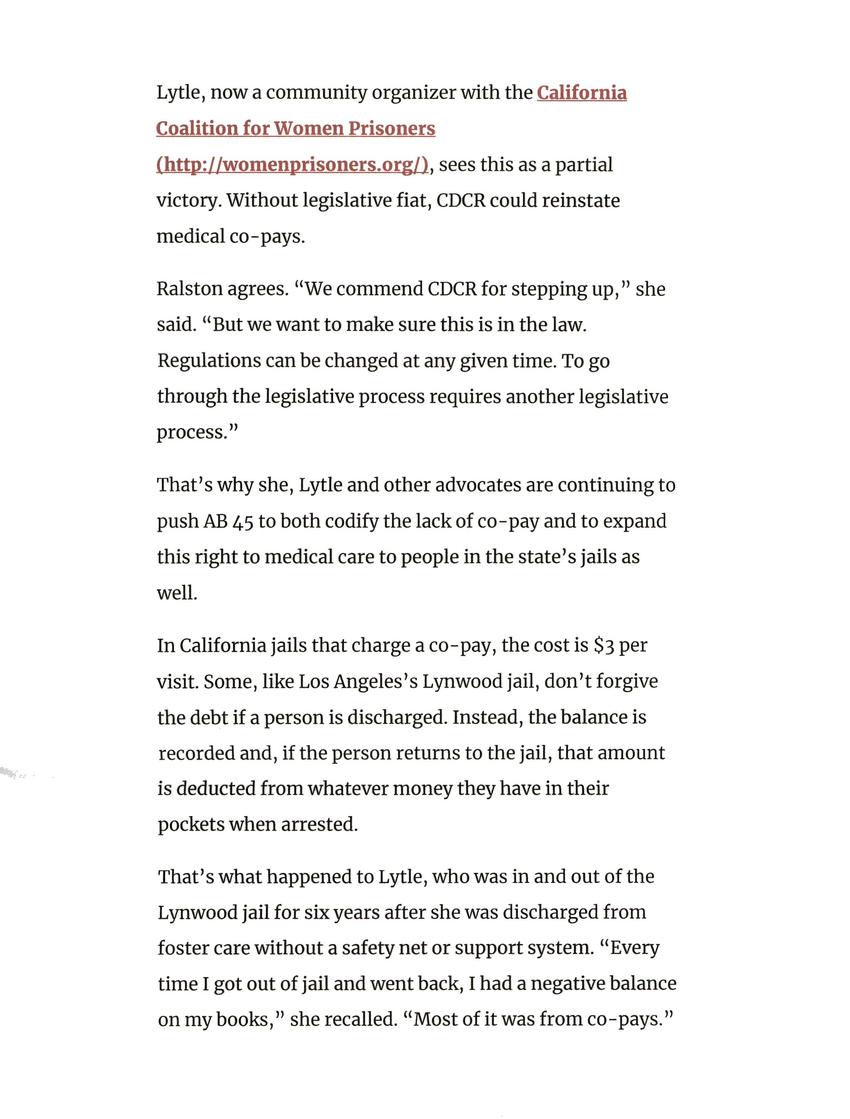
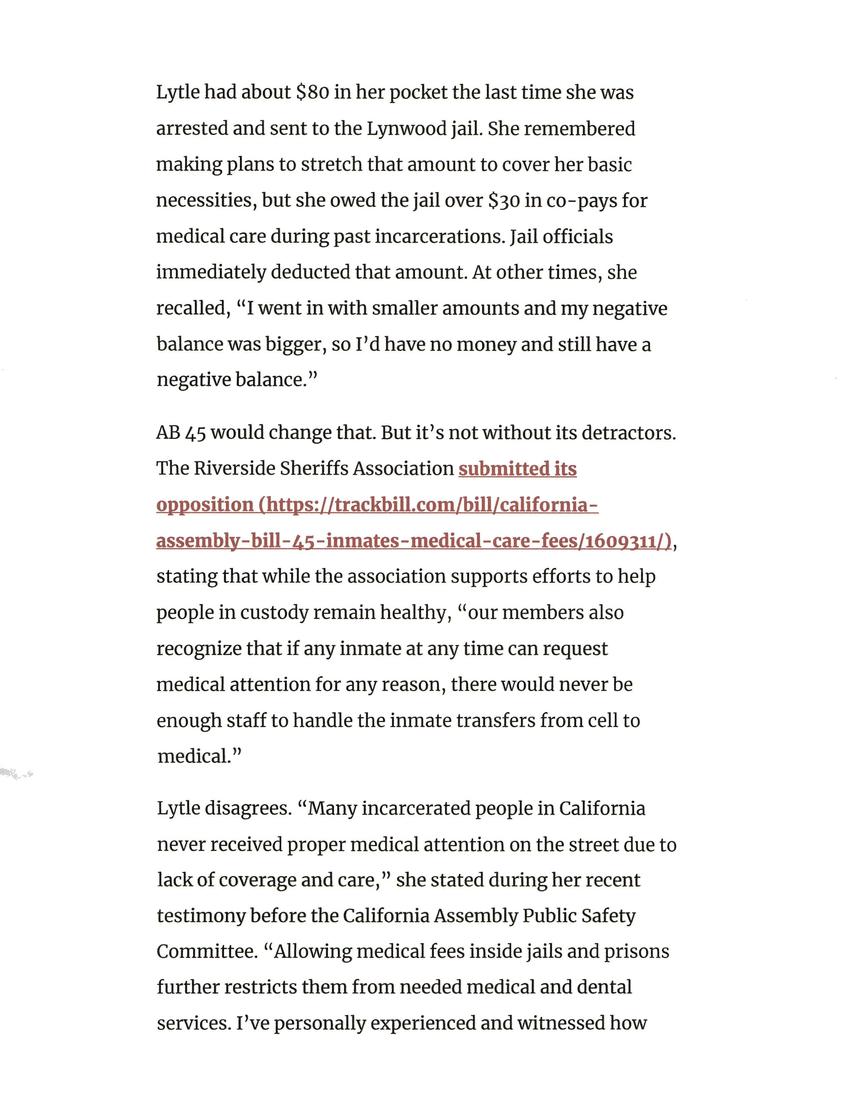
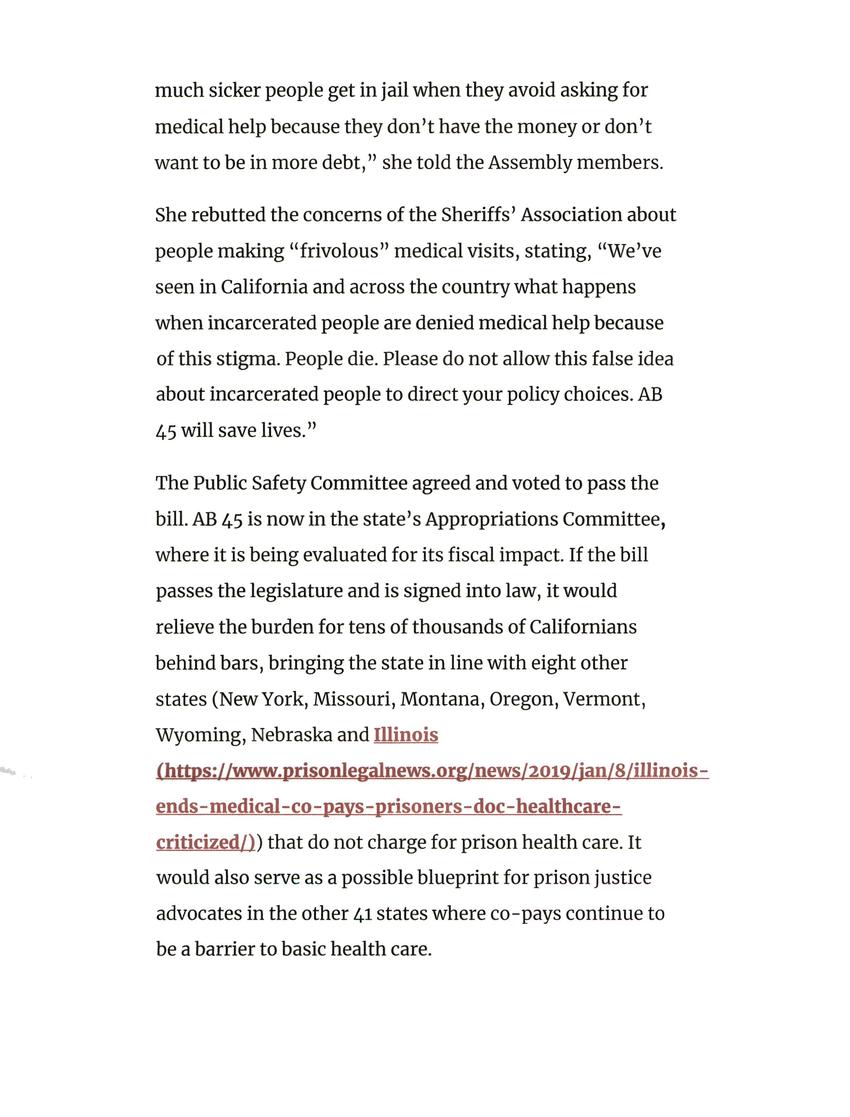
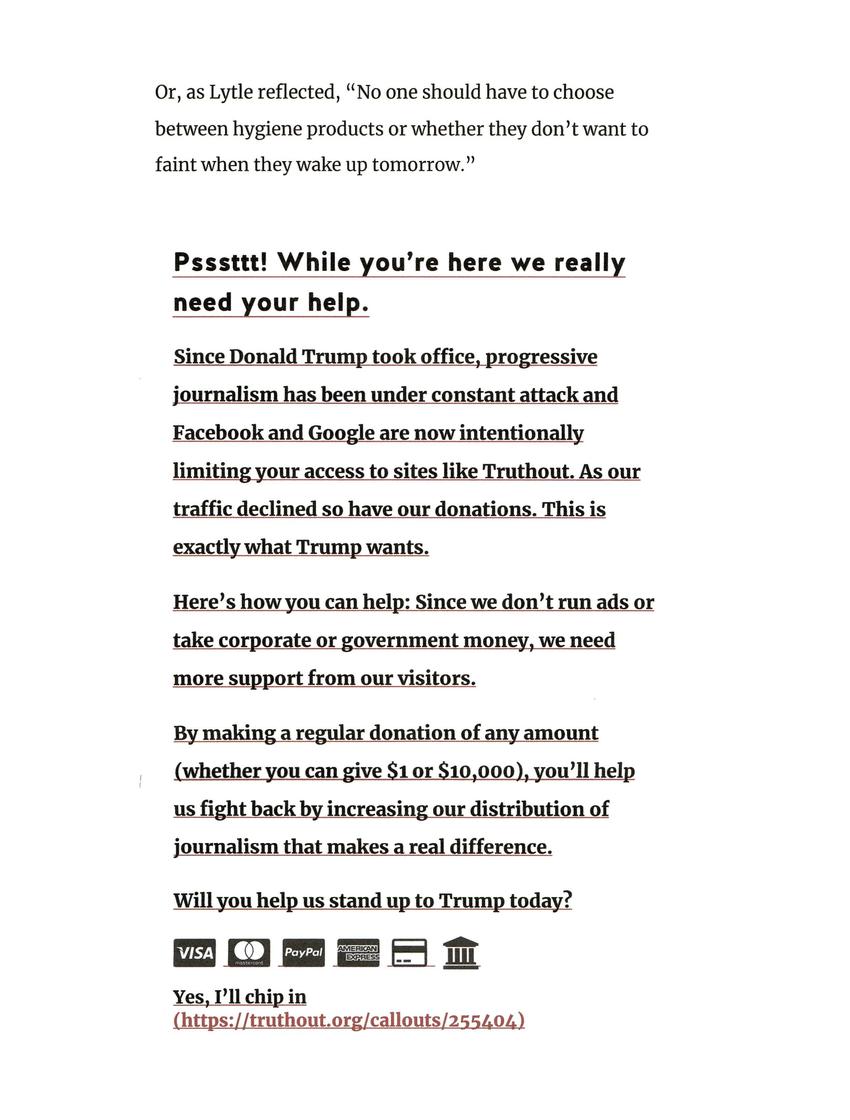

Replies (3)
Our Prayers are that GOD will send him home soon.
Thank you for being a special part of our lives. GOD Bless!!